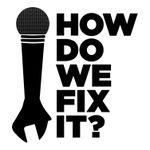The Case for Trust - Jerry Michalski
We live in a time of suspicion and mistrust. What is this costing all of us in lost productivity, creativity and shared humanity? Isn't there a better way to design our organizations and systems?
A recent Pew Research poll found that a majority of Americans believe that most people just look out for themselves, and that they would take advantage of you if they got the chance.
"We’ve internalized the assumption that humans can’t be trusted, and therefore, that we all need to be constrained and coerced into doing the right thing, pretty much all the time," wrote our guest, technology consultant, futurist and thinker Jerry Michalski, in a recent blog post.
And yet, there are examples of systems designed from trust that work surprisingly well.
- Anyone can edit and make changes to Wikipedia pages. Most of us rely on this open-source online encyclopedia for accurate information.
- Micro loans go to people of very limited means, who should be terrible credit risks. But their default rates are lower than for conventional loans.
- Netflix has no limit on vacation time and days off. The only guidance to employees that they act ethically and Netflix’s Best Interests.
- The international, self-supporting fellowship, Alcoholics Anonymous (AA), is also highly successful group that is designed from trust.
"It turns out that on average people are more trustworthy than we think they are," says Jerry. "Wikipedia has discovered this as have many, many other kinds of services."
Hosted on Acast. See acast.com/privacy for more information.
